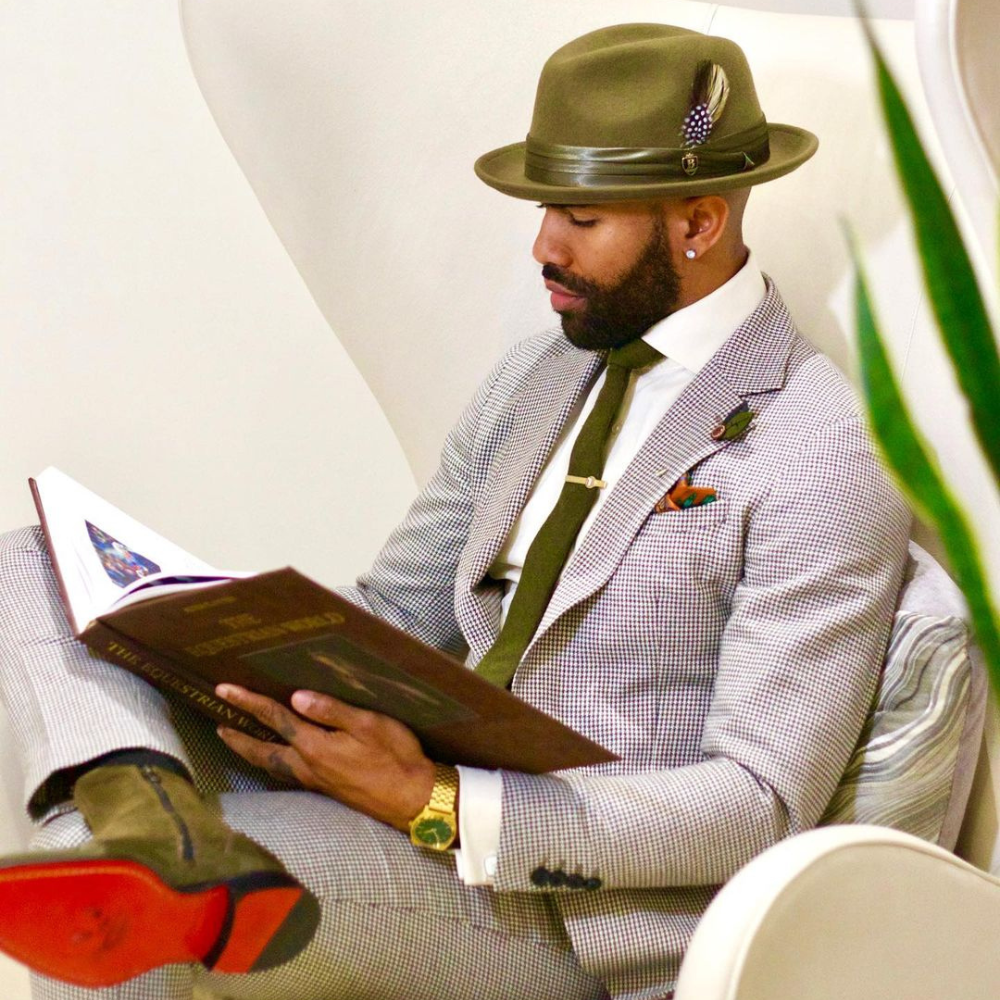Are Gender Roles In Society Still Relevant In Our Time?

A creative writer with a voracious appetite for fashion, beauty,…
D
oesn’t it ever beat your imagination why men are expected to be tough and women gravitate toward nurturing? Is there a reason why we count on men to be breadwinners, and women to prioritize family over a career even in the 21st century? More often than not, when you tune in to the TV, a commercial about daddy coming home from work and mommy in the kitchen prepping dinner for the family might come on. Are these roles influenced, or do we owe it to our nature to act this way?
It’s true that in the modern day, women are breaking the norm and aiming to stand on a pedestal that once seemed far away. For instance, highly successful women like Rihanna and Cardi B are taking more prominent roles on the homefront while still making waves in their respective careers. This March, Rihanna and her boyfriend, A$AP Rocky graced the cover of British Vogue in a shot that sees her take the lead as Rocky carries their adorable son, following behind. I find this shot, photographed by Inez & Vinoodh, symbolic as it shows that women can indeed take charge.
Despite these changes, one can’t deny that a huge chunk of our societies still leans towards gender roles. While this isn’t terrible by itself, gender roles, or the lack thereof, not only affect us as individuals but also influence our communities.
What are gender roles?
According to Wikipedia; “A gender role, also known as a sex role, is a social role encompassing a range of behaviors and attitudes that are generally considered acceptable, appropriate, or desirable for a person based on that person’s sex. Gender roles are usually centered on conceptions of masculinity and femininity, although there are exceptions and variations.”
In other words, these are expectations of individuals based on their gender. In many societies, men are often expected to be tough, aggressive, and independent, while women are expected to be nurturing, caring, gentle, and dependent. This gendered division of labor has been reinforced by cultural and social norms, media representation, and educational systems.
The idea that men should “suck it up” and women should “take care of the home front” can be traced back to traditional gender roles based on the biological differences between men and women. Men were typically hunters and warriors, while women were caretakers and homemakers. However, as societies have evolved, these gender roles have become more rigid and have been used to justify inequalities and discrimination.
For men, the pressure to be tough can lead to emotional suppression and difficulty expressing vulnerability. This can have negative consequences on mental health and relationships. Additionally, the expectation that men should always be the provider can also lead to financial stress, job dissatisfaction, and resentment toward their partner.
Assertions on the relevance of gender roles in our time
Some argue that these roles are still relevant in our time, while others disagree. Here are some arguments on both sides of the debate:
An argument for the relevance of gender roles

- Biological differences: Men and women have different biological traits that make them better suited for certain roles. For example, women are biologically better suited for giving birth and nurturing children, while men are stronger and better suited for physically demanding jobs. Therefore, gender roles are necessary to ensure that society functions efficiently.
- Tradition and culture: Gender roles have been part of human culture for centuries. They have been passed down from generation to generation and are deeply ingrained in our society’s traditions and culture. To abandon them completely would be to abandon our history and culture.
- Complementarity: Men and women are different but complementary. They have different strengths and weaknesses that can be used to their advantage. For example, women are naturally more empathetic, while men are often assertive and goal-oriented. By embracing gender roles, we can create a harmonious balance between these different traits.
- Family stability: Gender roles can provide stability within the family unit. When each family member knows their role and responsibilities, it can reduce conflict and create a sense of order. For example, if the father is the breadwinner and the mother is the caregiver, each partner knows what is expected of them, and there is less confusion or disagreement. When both run off the door chasing daily bread, this could lead to the neglect of the children.
- Natural tendencies: Some argue that gender roles are not solely a societal construct, but are rooted in natural tendencies. For example, studies have shown that men tend to be more interested in jobs that involve leadership, while women tend to be more interested in jobs that involve caring for others. By recognizing these natural tendencies, we can create a society that allows each gender to pursue careers and activities that align with their strengths and interests.
An argument against the relevance of gender roles

- Equality: Gender roles often are based on the assumption that men are superior to women. This is simply not true. Men and women should have equal opportunities and pursue their interests and careers without limitations based on their gender.
- Limitations: This mentality can be restrictive. They dictate what men and women should do and how they should behave, which can prevent individuals from expressing their true selves and reaching their full potential.
- Stereotypes: The concept of gender roles is often based on stereotypes that do not reflect the reality of modern society. For example, women are often portrayed as emotional and weak, while men are portrayed as strong and unemotional. This reinforces harmful stereotypes and can lead to discrimination and inequality.
- Changing societal norms: Society is constantly evolving, and gender norms are no exception. As more women enter the workforce and men become more involved in caregiving, traditional gender roles are becoming less relevant. By embracing these changes, we can create a more modern and inclusive society that recognizes the diversity of our societies.
The skirmish over the relevance of gender roles is multifaceted and complex. Ultimately, it is up to each individual to decide for themselves what gender roles, if any, they choose to embrace.
Effects of gender roles on the individual and the community

These roles can have a significant impact on individuals and communities.
Individual Effects:
- Limited opportunities: Gender roles can limit an individual’s opportunities in life, particularly in education and employment. For example, women may be encouraged to pursue traditionally “female” careers, such as teaching or nursing, while men may be encouraged to pursue “masculine” careers like engineering or law enforcement. If a woman chooses to be an engineer and a man wants to be a nurse, it should be their prerogative.
- Narrow self-concept: The idea of gender roles in society can also narrow an individual’s self-concept, limiting their understanding of who they are and what they can achieve. For example, a woman who is raised to believe that her primary role is to be a wife and mother may struggle to envision herself as anything else. It’s no problem if that’s what she wants but letting people make these choices without the burden of duty should be the aim.
- Pressure to conform: The weight of these perceived roles can create pressure on individuals to conform to traditional expectations, even if they don’t align with their interests or values. For example, a man who enjoys cooking or caring for children may face ridicule or rejection from his peers.
- Mental health issues: The pressure to conform to traditional gender roles can contribute to mental health issues such as depression and anxiety, particularly for those who don’t fit neatly into the prescribed roles.
Community Effects:
- Unequal distribution of power: Gender roles can lead to an unequal distribution of power in a community, with men often occupying positions of authority and women relegated to subordinate roles. This can lead to gender-based discrimination and violence.
- Stereotyping: This can reinforce stereotypes and prejudice about what men and women are capable of, leading to discrimination and limiting opportunities for some individuals.
- Lack of diversity: The effect could create a lack of diversity in a community, as persons who don’t conform to traditional expectations may be marginalized or excluded.
- Inequitable treatment: Gender roles can also lead to inequitable treatment of men and women in areas such as education, healthcare, and employment, which can have long-lasting effects on individuals and communities.
The crux of the matter which individuals fail to recognize is that gender roles in society take away the power of personal choice. Whether in a home or workplace, people shouldn’t be pressured to live up to the expectation of society. If a man wants to cook while his wife works, let him do that without judgment and scrutiny. The main thing is that the parties involved agree.
At the workplace, if the CEO is what a woman’s skills and experience have earned her, no one has the right to keep her promotion from her because she squats to pee, has volatile hormones, and has the propensity to birth children.
Featured image: Inez & Vinoodh for British Vogue via @badgalriri/Instagram
For the latest in fashion, lifestyle, and culture, follow us on Instagram @StyleRave_
This is a Style Rave original content exclusively created for our readers. If reproduced, distributed, transmitted, cached, or otherwise used by any other publishing house or blogs, such use should provide a direct link to this source article. Use of and/or registration on any portion of this site constitutes acceptance of our Terms & Conditions and Privacy Policy.
—Read also
A creative writer with a voracious appetite for fashion, beauty, lifestyle and culture. As one who's passionate about the advancement of the woman, creating content that inspire smart style and living, and positive lifestyle changes is a calling I take seriously. At Style Rave, we aim to inspire our readers by providing engaging content to not just entertain but to inform and empower you as you ASPIRE to become more stylish, live smarter and be healthier. Follow us on Instagram @StyleRave_ ♥




